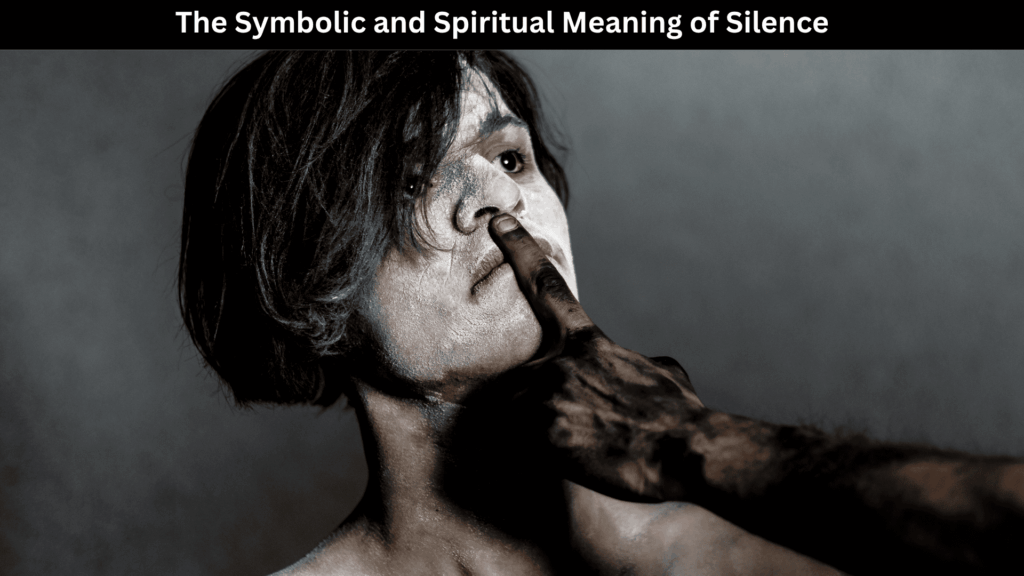The Profound Spiritual Meaning of Silence: 12 Transformative Insights into Inner Stillness
Discover the spiritual meaning of silence and learn how embracing quietness can awaken your intuition, peace, and divine connection in today’s noisy world.
The Quiet Power of Silence in a Noisy World

In today’s chaotic and fast-paced reality, silence often feels like a luxury. From the constant hum of social media to the endless chatter of our own thoughts, modern life rarely allows us to experience true stillness. Yet, beneath this surface noise lies one of the most profound spiritual teachers we can encounter — silence itself. The spiritual meaning of silence extends far beyond the absence of sound; it’s the presence of awareness, peace, and divine truth.
In many ancient traditions, silence is revered as sacred — a gateway to the soul. It holds the power to calm the restless mind, reconnect us to our higher selves, and remind us that truth often whispers rather than shouts. When we embrace silence, we begin to hear not just less, but more: our intuition, our heart, and the subtle messages of the universe.
The Symbolic and Spiritual Meaning of Silence

Silence has always been more than just quietness. Spiritually, it symbolizes wisdom, clarity, and divine presence. It’s a mirror that reflects the truth of who we are beyond labels and words. When you sit in silence, you start to perceive your own consciousness — that still awareness that exists even when the world is loud.
Silence teaches surrender. It invites humility, reminding us that not all answers can be spoken. In this space, the soul speaks — gently guiding us toward balance, compassion, and higher understanding.
Historical and Religious Perspectives on Silence
Across religions and spiritual traditions, silence is seen as a sacred discipline.
In Buddhism, silence nurtures mindfulness — it’s in quiet meditation that the Buddha reached enlightenment. Christian mystics, like St. John of the Cross, viewed silence as the doorway to union with God. Hindu sages practiced Mauna, the vow of silence, as a tool for spiritual purification. In Sufism, silence is surrender — the letting go of the self to merge with divine love.
These traditions share one truth: silence isn’t emptiness; it’s divine fullness.
Silence as a Spiritual Practice
Practicing silence doesn’t mean escaping life — it means meeting it with deeper presence. Whether it’s meditating in the early morning, sitting quietly by nature, or spending a few minutes in still reflection, silence allows your inner world to realign with universal harmony.
The more you practice stillness, the more you realize that silence is not separate from sound — it’s the background in which all life unfolds.
Psychological and Emotional Benefits of Silence

Science now confirms what ancient mystics always knew — silence heals. Studies show that periods of quiet reduce cortisol levels, enhance memory, and strengthen emotional regulation. Silence also gives space for self-reflection, helping you process emotions and recover from stress.
In a world obsessed with productivity, embracing silence might be the most productive act of all.
Silence and the Journey of Self-Discovery
When the noise fades, your inner truth surfaces. Silence becomes a spiritual mirror, revealing hidden fears, desires, and insights. It helps you reconnect with your intuition — that inner compass guiding you toward authentic living.
In the sacred space of silence, the external world loses its grip, and your soul finds freedom.
The Spiritual Energy of Sound and Silence
In the spiritual universe, sound and silence are two sides of the same coin. The cosmic vibration “OM” symbolizes both — the audible and the inaudible aspects of creation. Silence is the backdrop of existence, the field from which all sound emerges.
When we meditate on silence, we align ourselves with that universal rhythm, where even stillness vibrates with divine energy.
Lessons from Spiritual Teachers and Mystics
Mystics across ages revered silence. Rumi wrote, “Silence is the language of God, all else is poor translation.” Eckhart Tolle teaches that presence — awareness of the “now” — arises only when the mind quiets. Lao Tzu taught that “those who know do not speak.”
These timeless insights remind us that wisdom isn’t found in words but in the spaces between them.
Silence and Relationships: Deepening Connection

Silence also strengthens relationships. When two people can share quiet without discomfort, it signifies deep understanding. True connection doesn’t always need words — sometimes, presence speaks louder.
Silence in companionship nurtures empathy, patience, and emotional intimacy.
Barriers to Embracing Silence
Despite its power, many resist silence. Some fear loneliness, others dread confronting buried emotions. Modern culture glorifies constant noise, equating quiet with emptiness.
Yet, true silence is not loneliness — it’s unity. It’s not absence — it’s presence.
How to Practice and Integrate Silence Spiritually
Here are a few powerful ways to weave silence into your life:
- Morning reflection: Begin the day with 10 minutes of silent awareness.
- Nature connection: Spend time outdoors listening to natural stillness.
- Silent prayer or meditation: Offer your heart’s devotion in quiet surrender.
- Digital detox: Create noise-free zones by unplugging from devices.
- Silent retreats: Dedicate a day or weekend to deep inner stillness.
Through these practices, silence transforms from an external condition into an inner state of peace.
The Mystical Paradox: Silence as Sound

The deepest truth is that silence itself is a sound — the vibration of divine being. The universe hums in quiet harmony, and when you listen closely enough, you hear that wordless song.
In silence, we meet the infinite — a communion beyond language, where the soul knows it has come home.
FAQs
Is silence necessary for spiritual growth?
Yes. Silence allows you to access intuition and awareness that words often obscure.
How can silence help manage anxiety or stress?
Stillness calms the nervous system and reduces overstimulation, creating inner peace.
Does practicing silence mean avoiding people?
No. It means being more present and mindful in relationships, even when words aren’t needed.
Can silence be uncomfortable at first?
Absolutely. But discomfort is a sign of growth — your mind learning to quiet down.
How long should I practice silence daily?
Even 5–10 minutes can make a profound difference if done with awareness.
What’s the ultimate spiritual meaning of silence?
It’s the realization that you are one with divine consciousness — beyond sound, thought, or form.
Conclusion
The spiritual meaning of silence invites us to awaken — not through doing, but through being. It’s in silence that we rediscover the rhythm of the soul, the peace of the heart, and the truth of existence itself.
As you walk through life, carry silence within you. Let it guide your thoughts, calm your emotions, and illuminate your path. For in the end, silence isn’t empty — it’s full of everything divine.